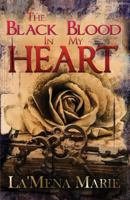What's Happening to My Body? Book for Girls : A Growing Up Guide for Parents and Daughters
Select Format
Select Condition 
Book Overview
Everything preteen and teen girls need to know about their changing bodies and feelings Written by an experienced educator and her daughter in a reassuring and down-to-earth style, The What's Happening to My Body? Book for Girls gives sensitive straight talk on: the body's changing size and shape; the growth spurt; breast development; the reproductive organs; the menstrual cycle; body hair; diet and exercise; romantic and sexual feelings; and puberty in the opposite sex. It also includes information on anorexia and bulimia, sexually transmitted diseases, AIDS, and birth control.
Featuring detailed illustrations and real-life stories throughout, plus an introduction for parents and a helpful resource section, this bestselling growing-up guide is an essential puberty education and health book for all girls ages 10 and up.
Selected as a Best Book for Young Adults by the American Library Association.
Related Subjects
Anthologies Contemporary Fiction Genre Fiction Literary Literature & Fiction Short Stories WarCustomer Reviews
Rated 5 starsThorough, thoughtful, and age appropriate
I purchased this book and read it cover to cover before giving it to my 10.5 year old daughter. I found it to be very direct, clear, and comprehensive. It has many drawings which are informative but not salacious. It is reassuring throughout on many topics and encourages a girl to seek help from parents or other trusted adults. The authors focus on common issues but offer hints of many complex problems with further contacts...
2Report
Rated 5 starsWonderful book!
My mother bought this book for me when I was ten. Her mother had never explained any aspect of puberty or menstruation to her and she was afraid of giving me confusing or incorrect information. I remember reading this book cover to cover at least five times and going through it again as I was a teenager and had questions. I developed earlier than most girls and this book was a reassuring source of information. It not only...
3Report
Rated 5 starsGreat book for teens, pre-teens and parents alike
This is a great book for anyone interested in the process of growing up. I am a 15 year old girl and my mom got me this book when I was 10 years old, and I love it. It answered all my questions about growing up. Some people think that this book is too advanced for your average pre-teen, but having been there just a few years ago, I can assure you that it is not. The book provides a lot of information that I was curious...
3Report
Rated 5 starsThank you for educating me AND my daughter!
I happened on this book in our local library--boy am I glad I did. As a companion book, I also checked out the What's Happening to my Body? Book for Boys--I have 3 sons and 1 daughter. Not only did it bring up issues I had forgotten, it taught us a lot I didn't even know to tell my kids. My daughter is now a resource for her classmates. She's only 10 but told me the other day that her friends are 'not taking this seriously'...
3Report
























